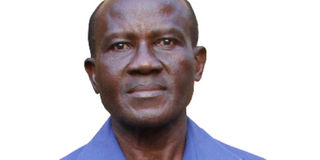No sane society should give religious fanatics self-regulation

Many phenomena in the universe are not yet fully understood. Civilisations sometimes construct myths to ‘explain’ those mysteries. We restless humans often live by these myths. But sometimes we get so engrossed in these myths that we become ‘fanatical’. The disorientation blocks the channels that link us with the rest of mankind and disconnects us from the tangible universe.
That is why when the fanatic loves his God and hates those who do not share his fervour, he loves and hates with an intensity that seems entirely absurd to a spectator.
The religious fanatic disturbs me, because he always has a hidden (and sometimes an overt) interest in political power. He wants to harness the raw muscle of political power to entrench his spiritualised world view.
The current crisis in politico-theological thought in parts of the Islamic world should not fool us that the mindset that nurtures the terrorist is limited to Islam. Hinduism, Christianity or Communism (when Communism took the likeness of a religion), have all at different times bred fanatics who turned to barbarism. Religious fanaticism and fascism often roll in the same bed.
So, after a prominent preacher and leader of one of the many rivalling Pentecostal groups, Dr Joseph Serwadda, repeatedly declaring that he did not believe in democracy, we are entitled to worry what his followers believe in, apart from prosperity, or money, which he proclaims for them every day, and for which he has devised a sprawling prayer programme, including prayers for their plots of land!
A taxi-park tout who blurts out a dismissal of democracy can be ignored. But when it comes from an educated person who refers to himself and is referred to by his followers as an ‘apostle’, sometimes a ‘prophet’, we fear that tomorrow his God (or a dream) may instruct him to demolish our polling-stations and command us to obey and pay taxes to a zombie wearing the colours of Mammon!
Indeed, even regarding religious leadership, supposing one day, say in 2091AD, the myriad of Pentecostal freelancers renounced their weird ways, miraculously becoming one religion instead of frenzied faith mobs obsessed with Satanic demons and Godly miracles; supposing they accepted a common creed and a common liturgy and so on; if these improbable things happened, how would Uganda’s Pentecostal archbishop (not arch-prophet or arch-apostle) be elected, if not by a democratic (or representative college) vote?
Would God write the name of his choice for archbishop on a cloud? Or would the earthly president of the republic select the most gifted flatterer and post the name on Twitter?
Either way, what if God’s choice or the president’s flatterer (or even an elected archbishop) subsequently resurrected the old anarchic Pentecostalism that rejected the very concept of Church structures? The biblical passages that inspired him yesterday will still be there. Self-regulation would now mean authorised chaos.
Unfortunately, just as it is very difficult to create new viable kingdoms, it is very difficult to invent new religions that command credibility.
The sexual abuse of children in the Catholic Church shows that modern states already have enough problems with self-regulation in the traditional churches.
To give self-regulation to every group of freelance disrupters who draw big gullible crowds would open a gate for all manner of gamblers masquerading as God’s messengers.
The emphasis should be on making sure that these diverse spirit men do not break laws that enhance social harmony, especially now that the new disrupters are clearly ‘business’ upstarts who are fanatically anti-science, anti-knowledge and anti-social.
Mr Tacca is a novelist, socio-political commentator.
[email protected]




